Farms
Having spent decades taking care of the land for our crops, our coffee trees are members of our family. In order to sustain the richness of our soils and surrounding environment we maintain the natural forestry, and our farms are diversified with a variety of other crops. This includes a variety of banana trees, fruit trees such as oranges and avocados, sugar cane, chamomile and zacate, a wild tall grass that is grown to feed our cows.
El Pinal
Department of Ocotepeque, Honduras - 4,921ft.
San Isidro
Department of Chiquimula, Guatemala - 4,265ft.
La Granadilla
Department of Ocotepeque, Honduras - 4,265ft.
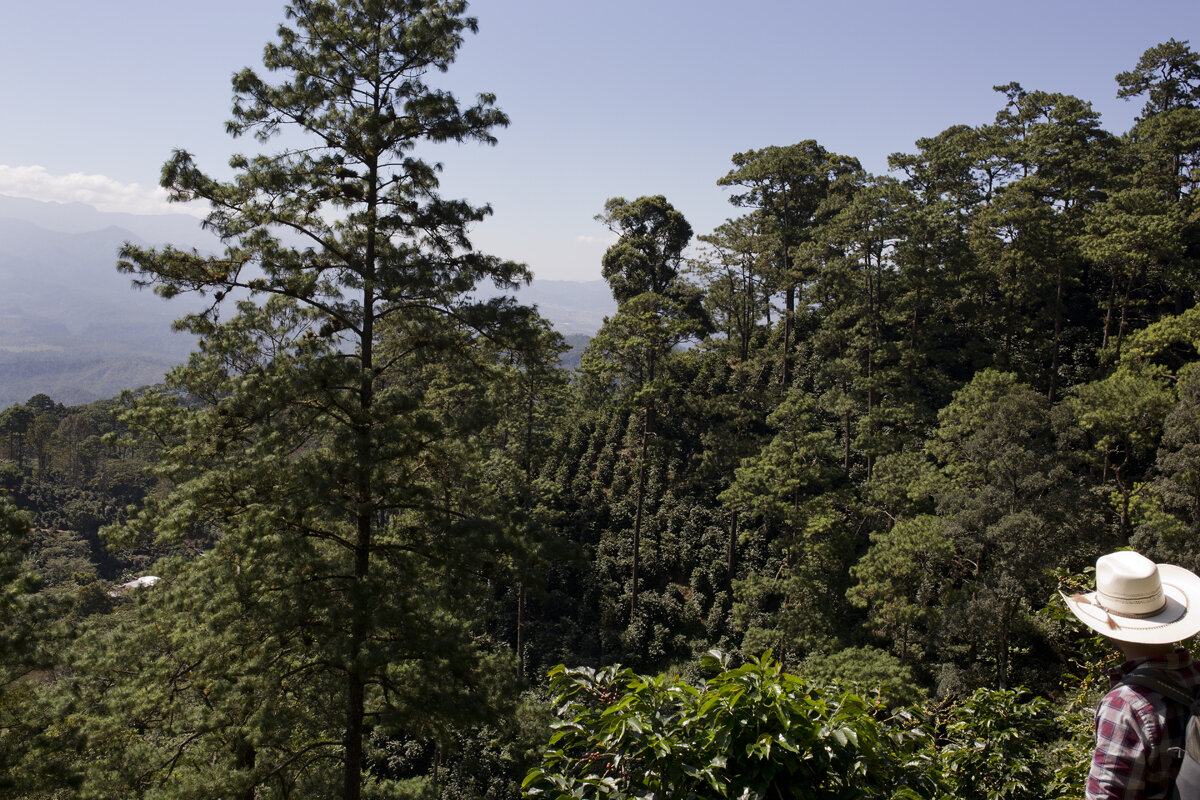
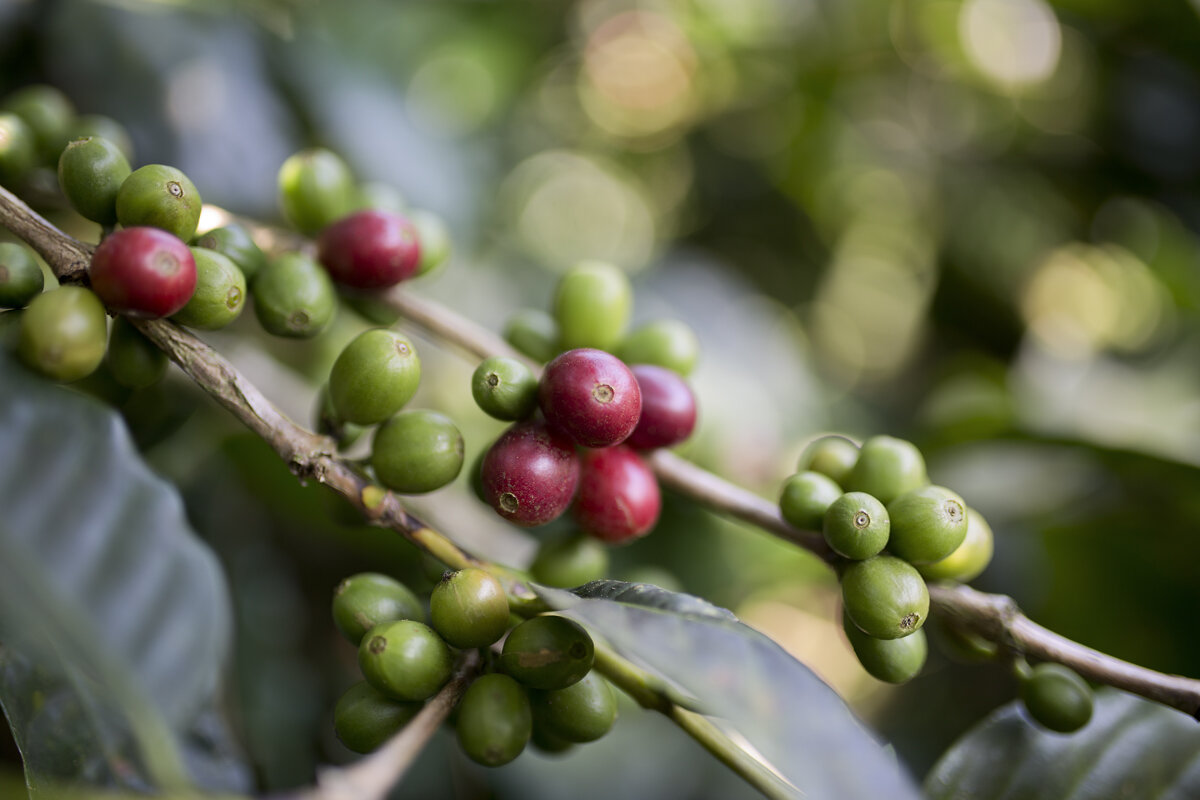
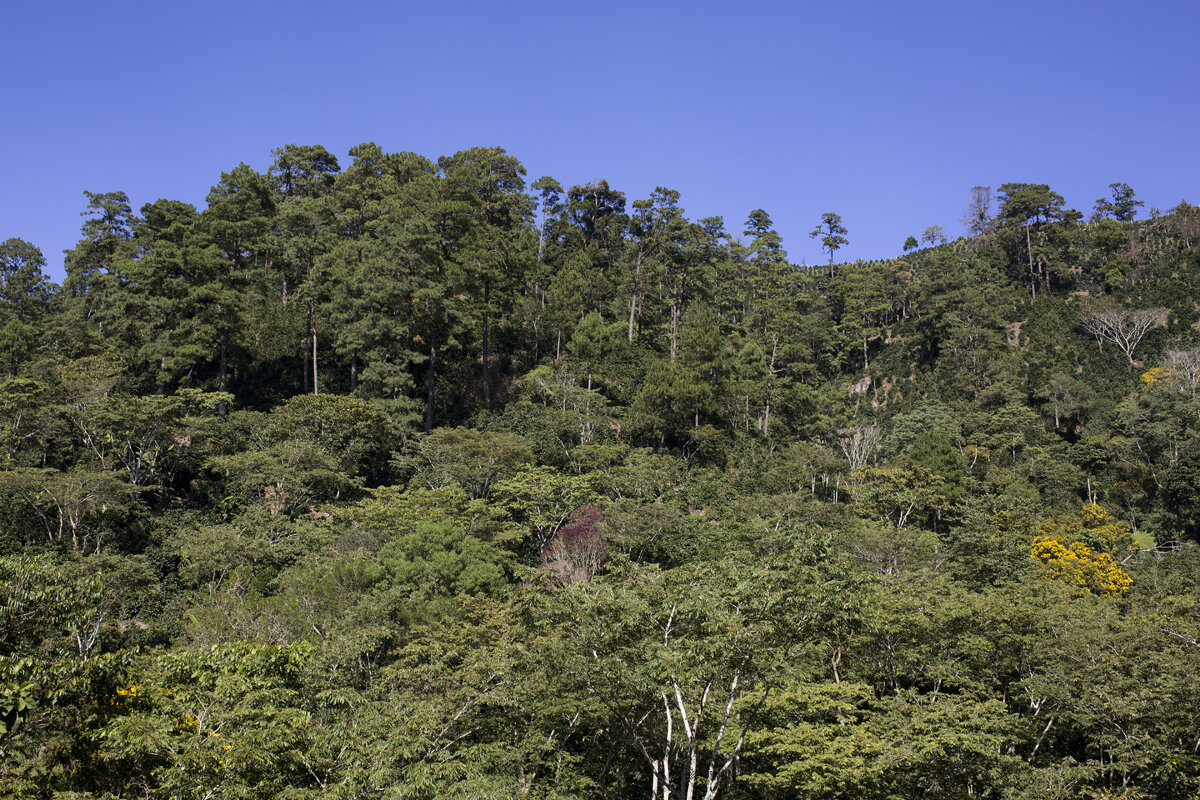
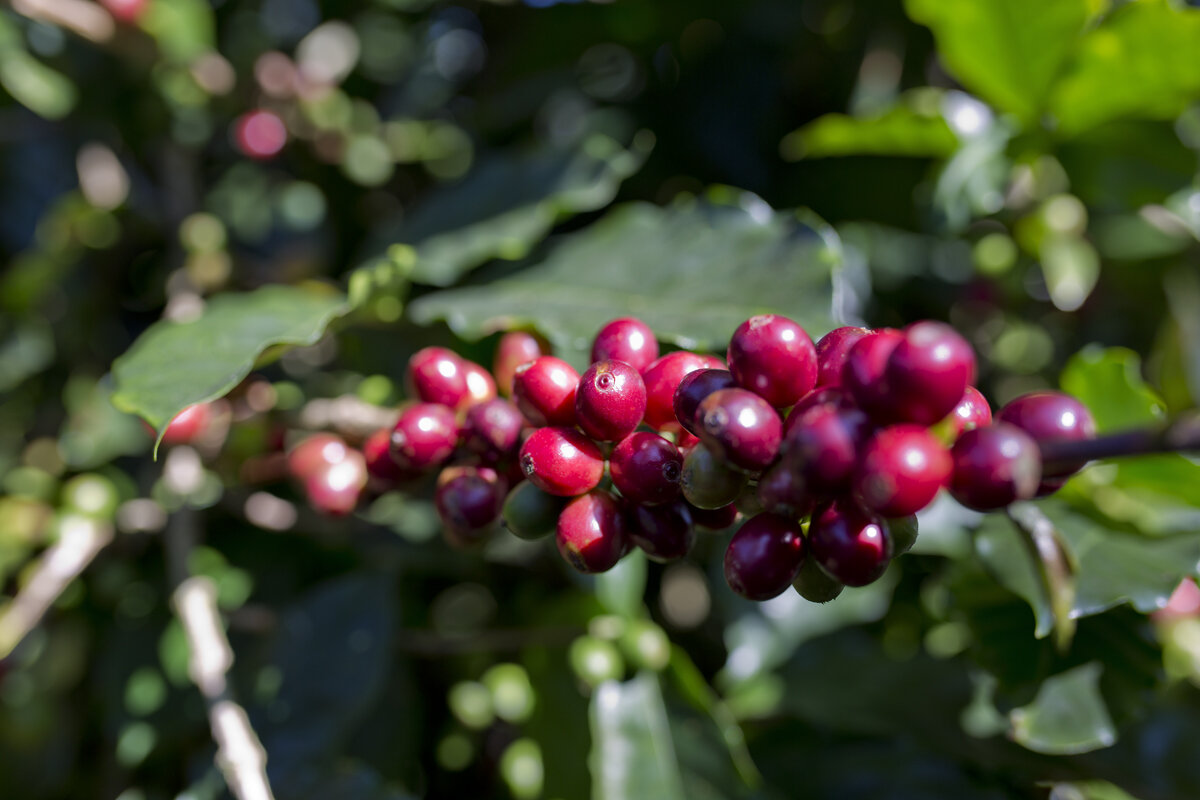
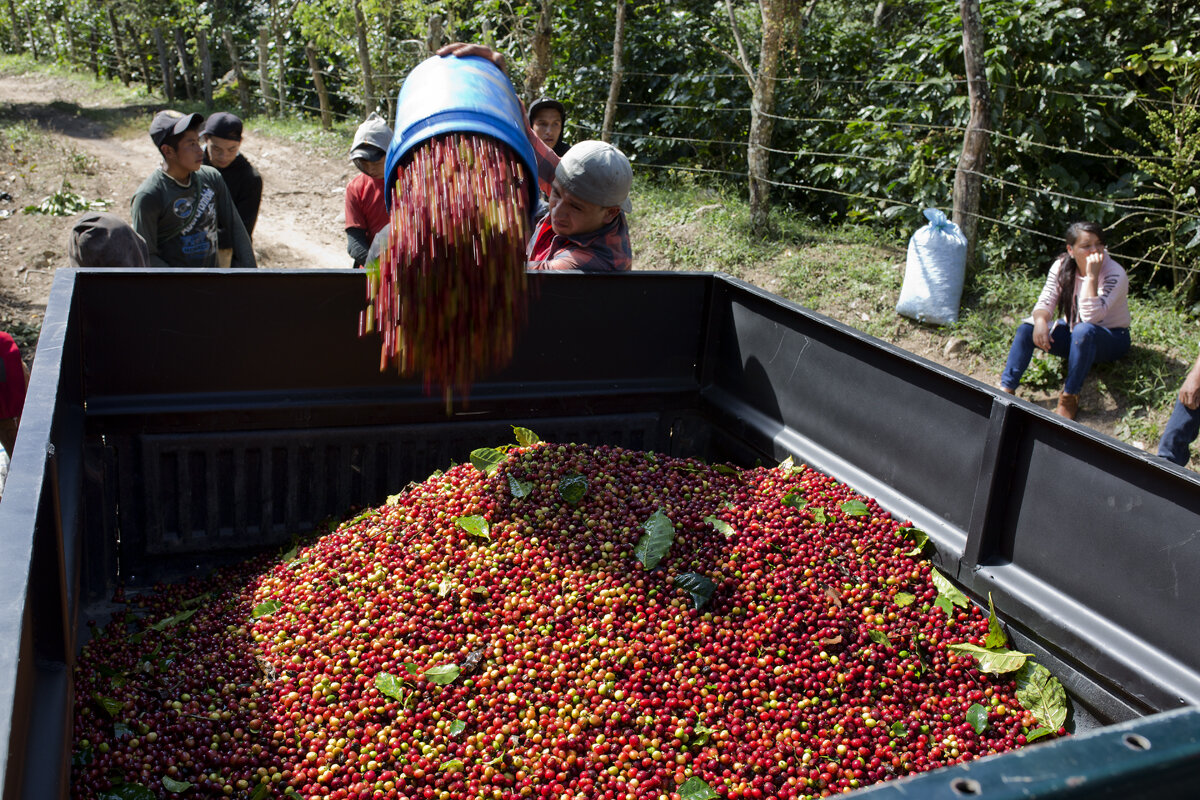
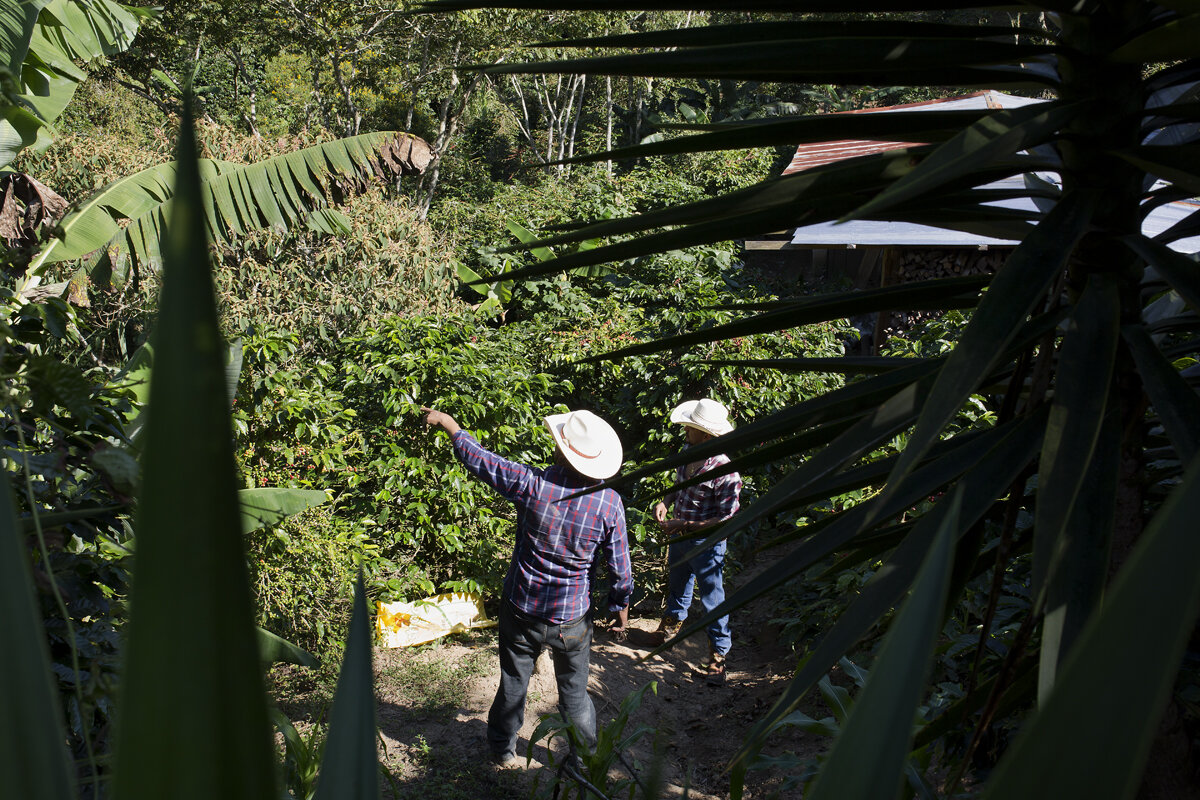
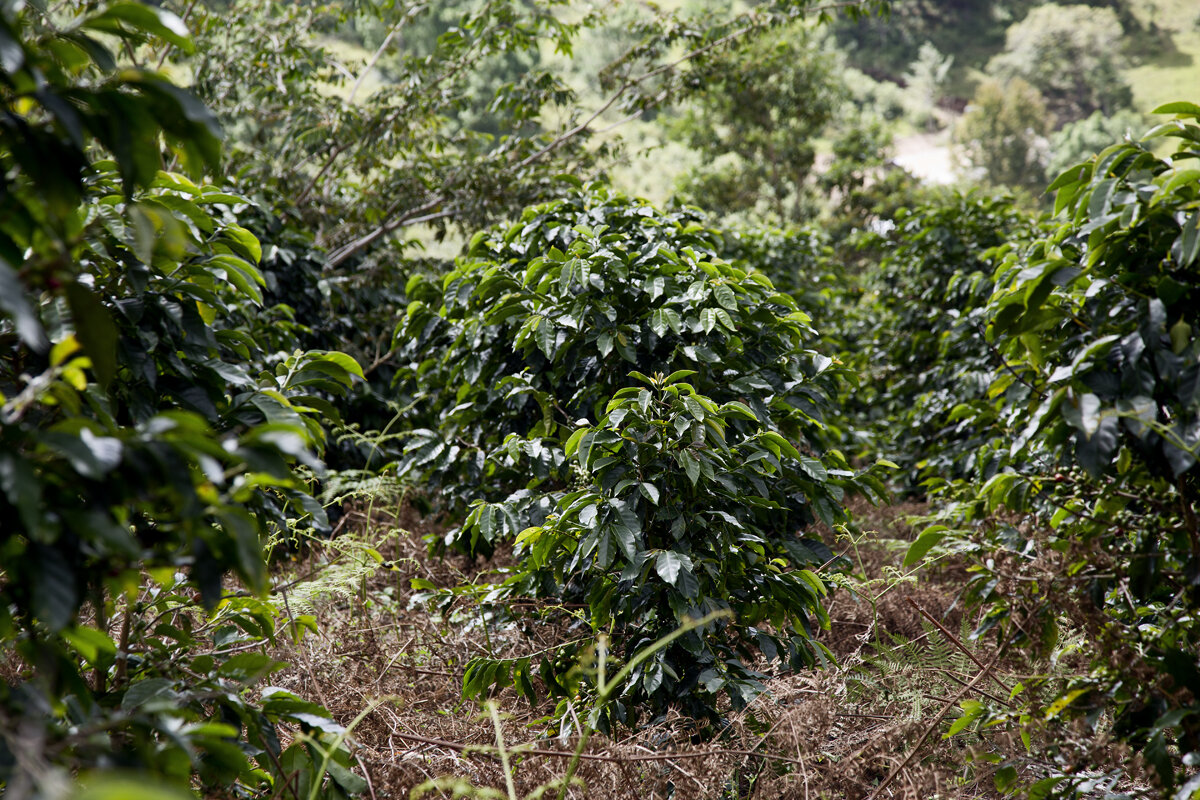
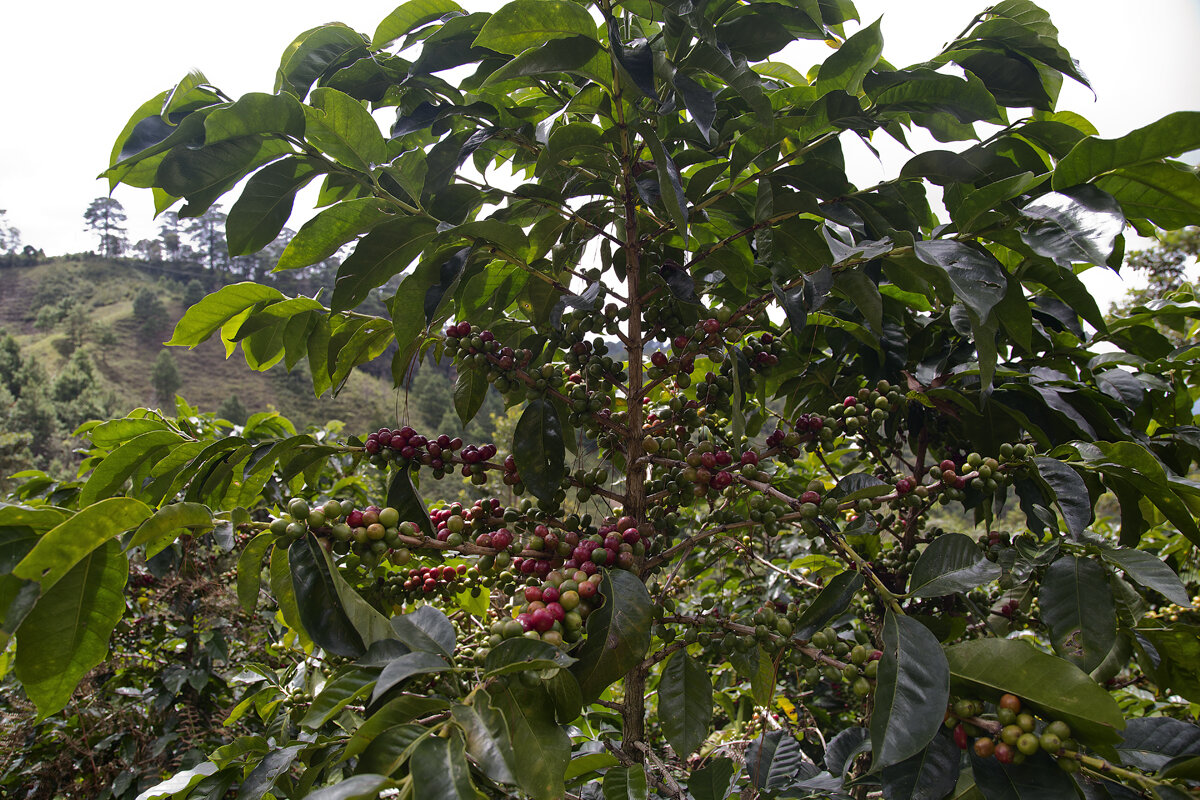
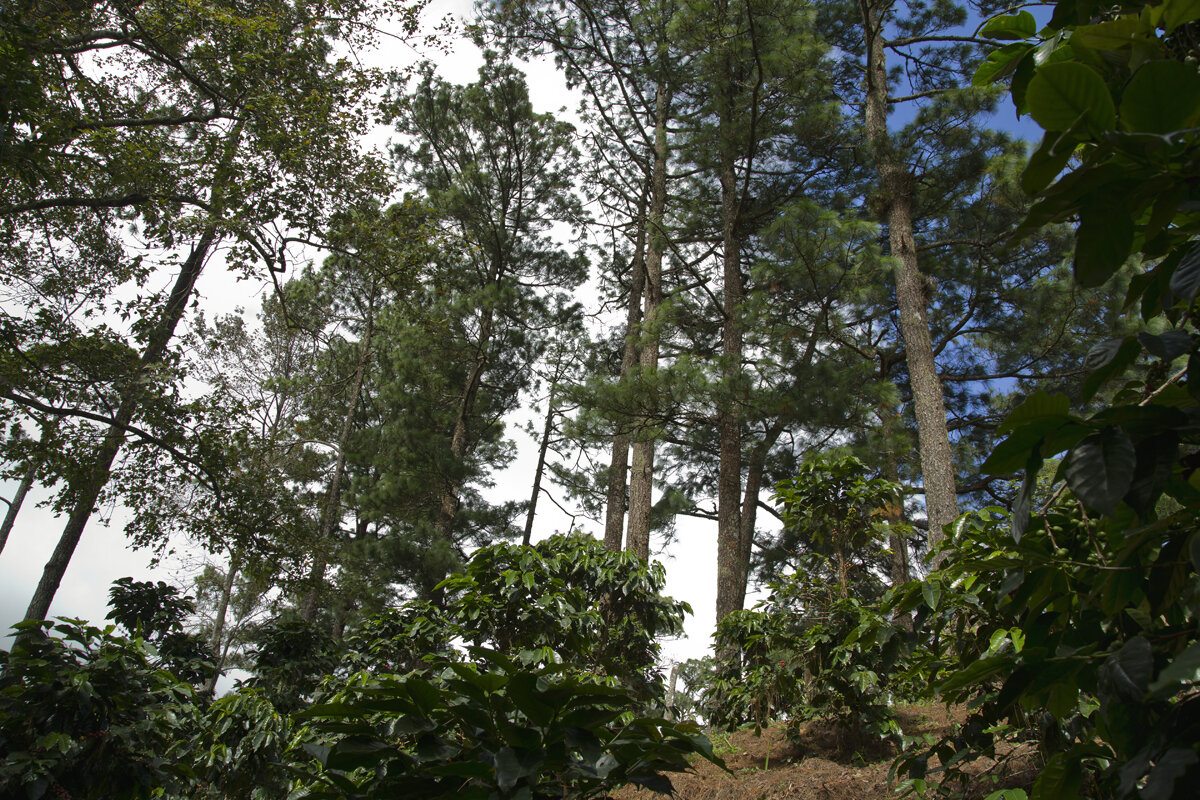
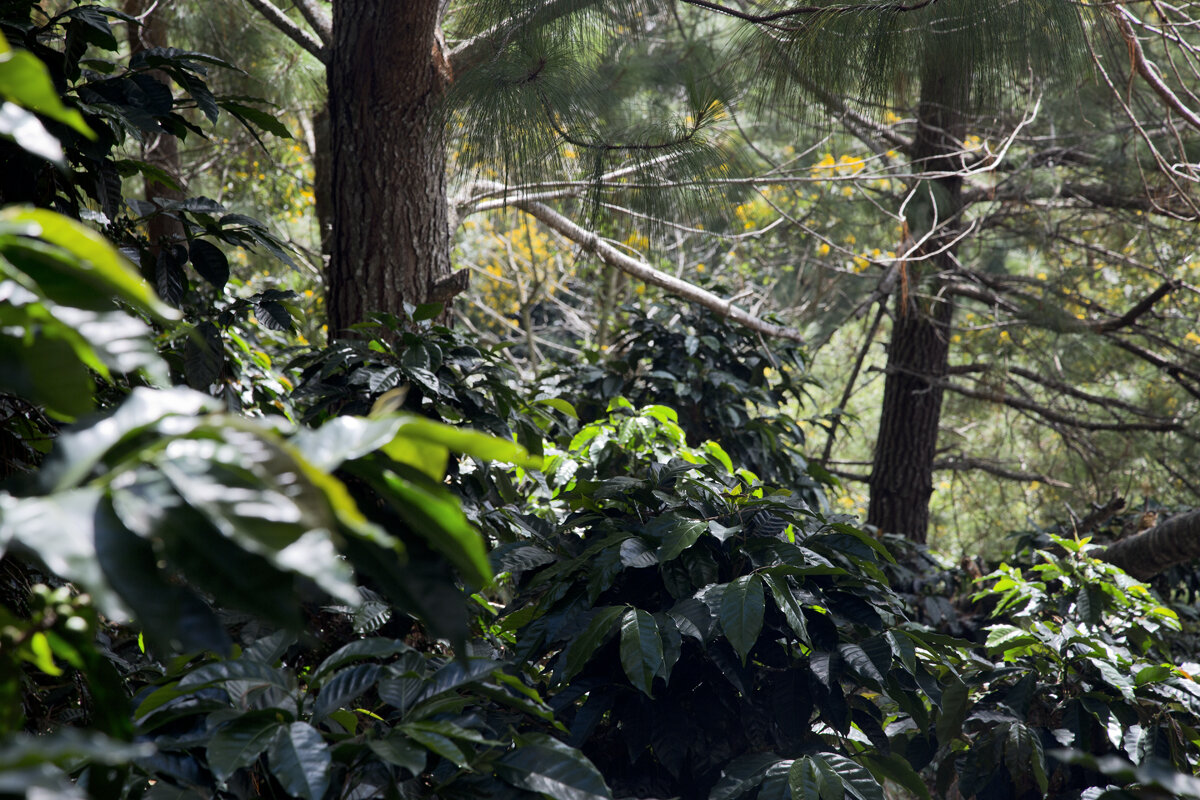
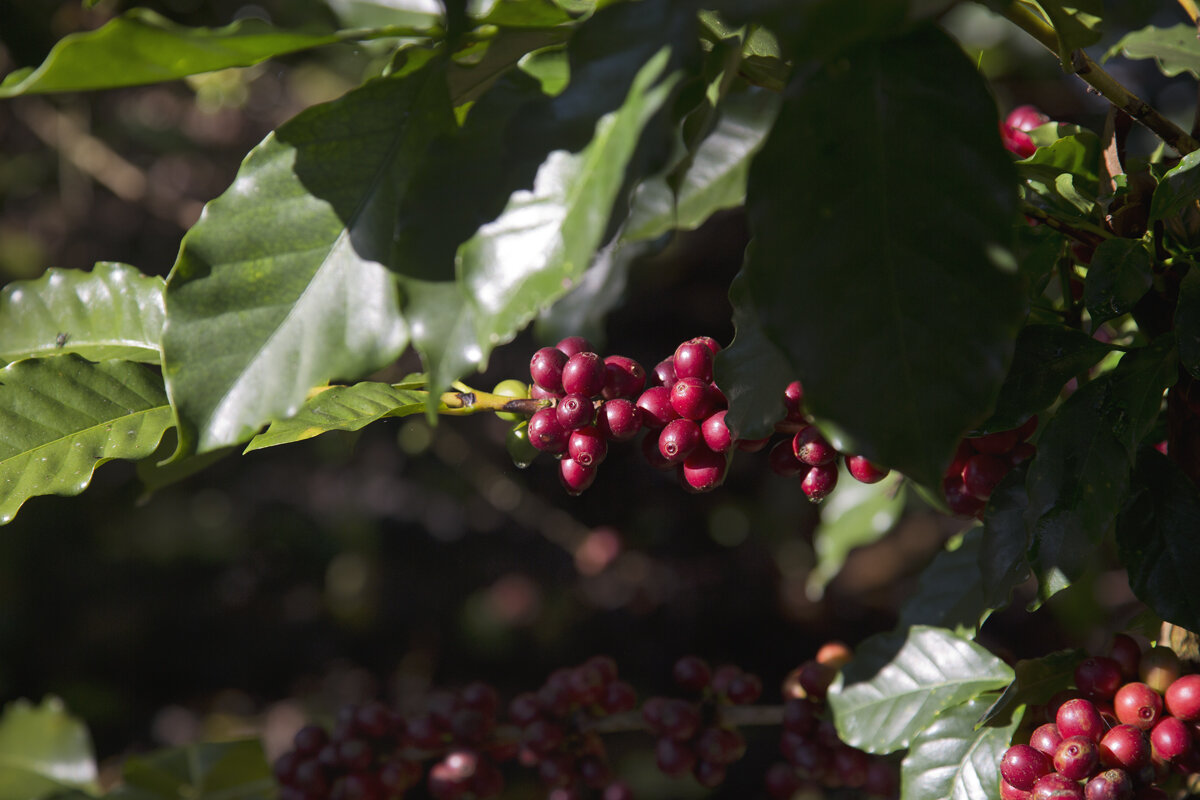
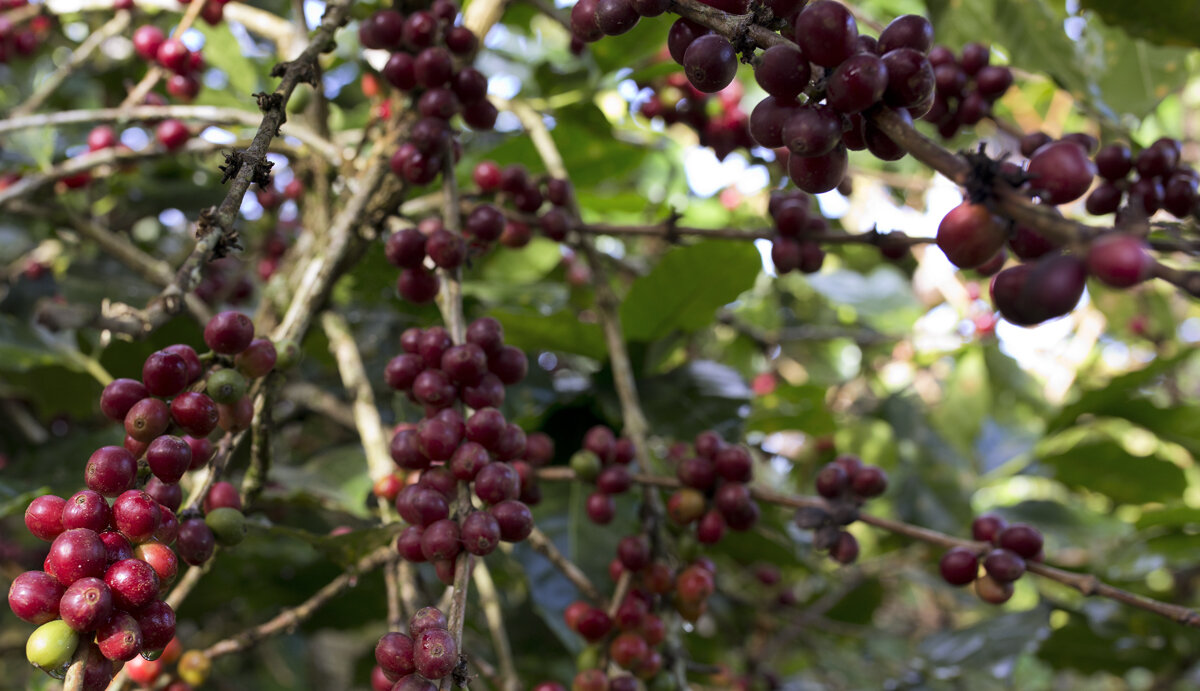
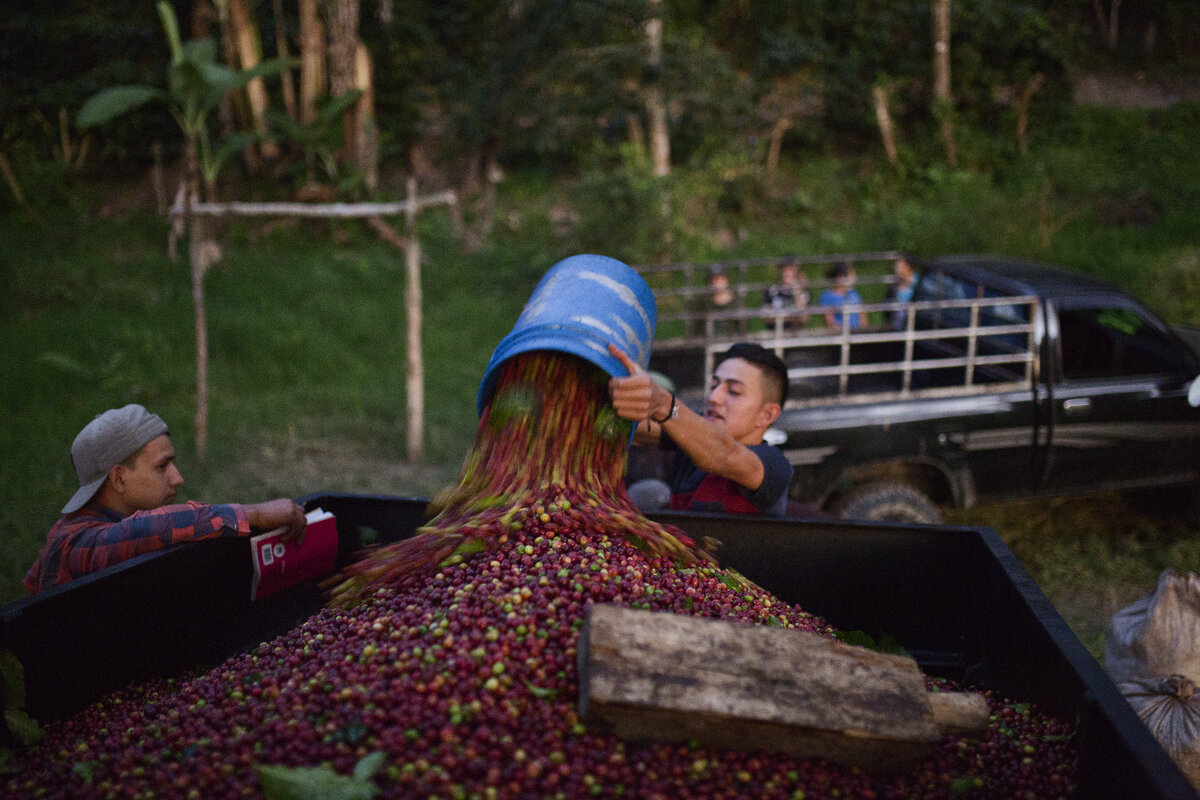
CULTIVO
We are a small scale family farm that has direct oversight over the growth, harvest, and roasting of our coffee. As farmworkers, we are the frontline quality control agents, otherwise known as ‘field baristas’. Our proximity to the cultivation of our products gives us a higher level of control than our competitors and a high quality using only arabica coffee.
One example of our quality control is done by handpicking the coffee cherries in four separate “cortes” or harvests. With each varying ‘corte’, the taste will carry a different flavor profile, with unique qualities. The seasonality and concentration of our harvests bring out these unique tastes in a way that is comparable to the approach of vineyards and wineries.
Additionally, the handpicking harvests have ecological benefits to the tree that boosts longevity versus other methods such as gas-operated machinery that strip the tree of the coffee cherries all at once at varying ripeness. Other sustainable methods we practice include shade-growing, repurposing waste from the depulping process of the ‘cascara’ or skin of the cherry as natural fertilizer. We also minimize pesticide use by an initial application of cow’s milk to deter pests and bacterial growth when coffee trees are young and ecological pest traps that are made from recycling plastic bottles. All of these practices contribute to the health, yield, bean size, and overall quality.
WASH PROCESS
Within a day of harvest, our coffee is washed by water through a depulping machine. The depulping machine removes the ‘cascara’ or outer part of the cherry, freeing the bean underneath. From there, the beans are fermented in tanks from 12-18 hours in order for the outer layers of the beans to naturally separate.
Washed coffees tend to produce a more drinkable thinner brew that highlight notes that are more chocolatey and smokier than a dry process.
ROASTING
We specialize in small batch roasting, ensuring you get the freshest coffee. All of our coffee is roasted locally in Chicago at our shared kitchen space in the West Town neighborhood using an 800g electric Shop Arc Roaster.
In addition to our shop Arc Roaster, our special edition micro-roasting batches are roasted using indigenous techniques that have been passed down through our family for generations using a ‘comal’. A comal is an earthenware smooth, flat griddle usually made of clay.
Our Comal Style roast akin to a more rustic quality, is a dark roast that has a sweeter, more earthy taste.








